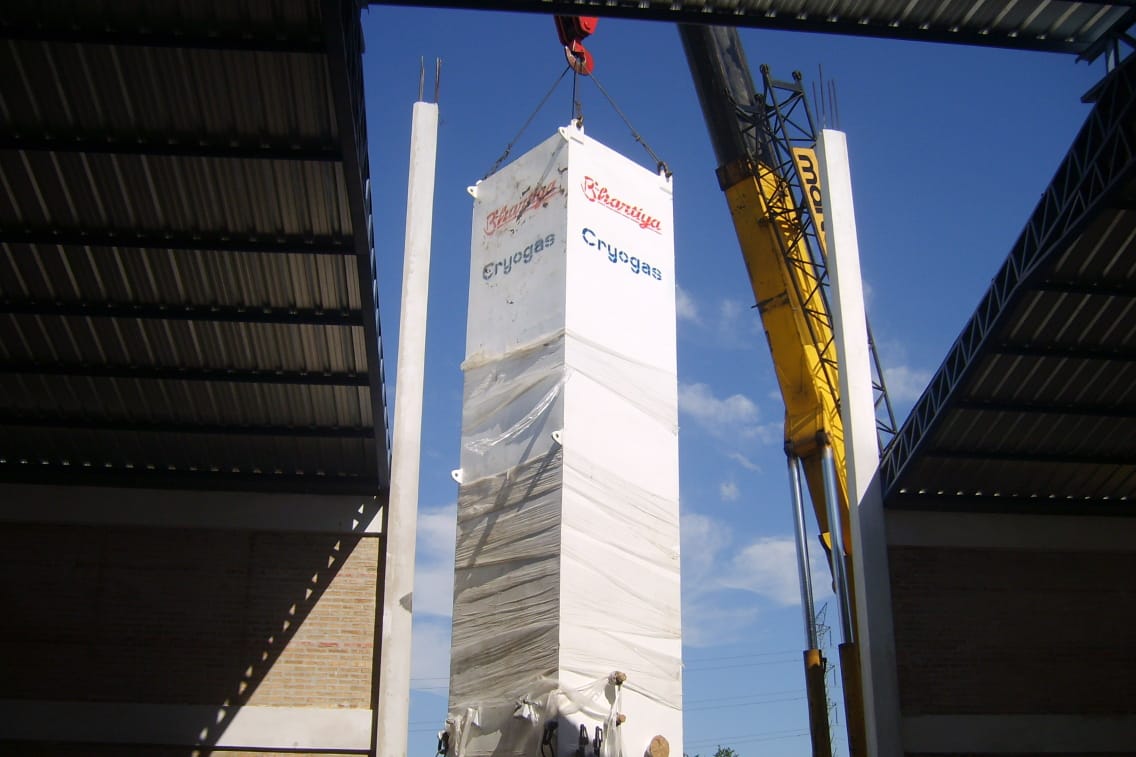- A-29, Industrial Area, Site IV,
Sahibabad, Ghaziabad, UP, India. - (+91-120) 2896063
info@bhartiyagroups.com


Among the most vital elements, oxygen makes up approximately 21% of the earth's atmosphere. It is a non-metal that is extremely reactive and an oxidizer that creates oxides with many of these chemical components. Nearly half of the earth's crust is oxygen. It is the third most common element in the universe in terms of volume. Steel, polymers and textiles are now all oxygen production plants, as are brazing, welding and cutting steel as well as other metals, rocket fueling, oxygen therapy and safety systems
Respiration
That is the most prevalent and significant application that ensures the survival of living creatures. Non-metallic gas too is necessary for oxygen therapy prescribed for patients with Chronic obstructive pulmonary disease (COPD) or other medical disorders that need the use of oxygen at home for the diagnosis. There are a slew of added features of employing compressed oxygen therapy.
Steel is produced by burning iron ore.
Around 55% of commercially made oxygen is used to extract metal impurities and excess carbon as hydrogen sulfide and carbon dioxide, respectively. Steel is produced by reducing iron oxides to pure oxygen, which contains oxygen.
Welding and cutting
Torched for cutting and welding require oxygen as well. When it is mixed with hydrogen, it can raise the temperature above 5000 °c. These flames can solder metals together again and cut throughout many metals.
Rocketry
Liquid oxygen plants are frequently utilized in both medicinal and industrial settings. It's employed as an oxidizer in missiles and bombs, where it's combined with liquid hydrogen and provides turn power. Space shuttles' space suits are filled with liquid oxygen.
Combination of compounds
The chemical industry is the largest consumer with around a quarter of all factory made oxygen. Methane combines with oxygen to form ethylene oxide, which is then turned into ethylene glycol, and is used as a feedstock for a variety of products such as freeze and polyester polymers. Heat and oxygen can be used to break down hydrocarbons. This technique is used to start the complete combustion, which results in the production of water and carbon dioxide. If the mix is properly controlled, hydrocarbons can be dissolved to generate acetylene, propylene, and ethylene.
Rehabilitation of liquid waste
Oxygen is also employed to cleanse untreated wastewater water. It's pumped through water to promote the production of naturally occurring bacteria that break down garbage. Bacteria use enzymes to break down carbon-containing organic substances, generating co2 and water. Bacteria require adequate oxygen to biodegrade waste materials in a timely way.
Glassware
Oxygen is a gas that boosts industrial productivity. It is used in glass ovens to increase burn and reduce nitrogen oxide (NOx) emissions. There seem to be methods that really can cut Co2 emission by 90% while using oxygen.
In the glass business, advanced technologies are evolving that guarantee a great future.
Paper and pulp
To eliminate the formation of dissolved molecules, paper and pulp mills have stopped employing compounds like chlorine in bleaching procedures (AOX).
Through its usage in delignification, oxidative extraction, and wastewater treatment, oxygen as an industry gas helps you to achieve severe environmental laws.
oxygen production plants, Liquid oxygen plants, oxygen gas production plant, liquid oxygen plant manufacturers in india







